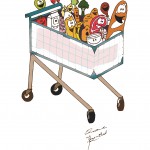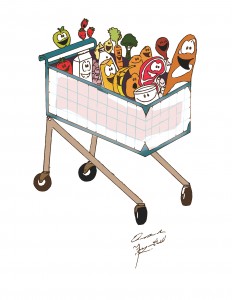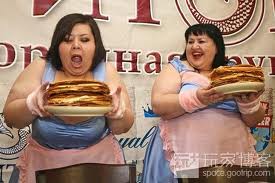Eat
Hippie House
Thursday, Jun 14, 2012 11:20 am
More than three decades before the Occupy movement launched, young people began to gather communally to huddle in uncomfortably crowded places, share inedible food, and ponder their political exigencies……. Â
Â
By Roz CumminsÂ
Â
I FOUND the house through a friend. It was falling apart, but the rent was cheap so, on a warm June day in 1981, I became a summer resident of one of the last hippie communes in Somerville, Massachusetts, a densely populated magnet town for college students attractive for its inexpensive rents and proximity to Boston.Â
 There were a lot of rules in the commune, as one might expect in a household of 16 people, and my new housemates explained them to me as we ate a dinner of badly scorched dal while sitting cross-legged on the living room floor. Housemates were expected to cook a meal once a week in teams of two. Ivy couldn’t eat wheat, and lots of jars in the kitchen were marked “non-Ivy edible.†Jane couldn’t even be in the same room with peanuts or peanut oil, and there were several tightly sealed jars labeled “Peanuts! DANGER!†lining the kitchen shelves.
 Josh, who had recently returned from India, ate only rice and rice products, not because of allergies, but because that’s what the guru at his ashram did. Nobody ate meat, they said, because that was insensitive to other life forms, and nobody ate white sugar because that was supporting the military-industrial complex. There were two dilapidated refrigerators shoved into opposite corners of the kitchen and two people made a shopping run to the food co-op in “Bird,†the house van, once a week.Â
AFTER THE FOOD rules were explained, other rules were discussed. “So, Drew,†someone asked, “have you thought some more about wanting to take a vote on making nudity required?â€
The phrase “I’m only subletting†was on the tip of my tongue, but to my relief Drew answered, “Well, I’ve thought about it a lot and, while I feel it would make an important political statement,†here he paused, “I’ve decided to withdraw the motion.â€
Nobody contested his decision, which seemed wise since the few chairs that were scattered throughout the house were covered in vinyl, and I was pretty sure that it would be hard to make any sort of statement, political or otherwise, with one’s buttocks stuck to a chair.
When dinner was over I noted that, while there were a lot of rules, none of them apparently concerned dishwashing. I washed sixteen mismatched dishes and went to bed.Â
WHEN I CAME DOWN to breakfast the next morning, I saw that during the night someone had filled The Book (a giant blank book left out on the kitchen table for telephone messages and notes to housemates) with exquisite cross-hatched drawings of the commune’s ubiquitous and iconic plastic honey bear bottle. A thought bubble floated above his head in which he wondered plaintively, “Why don’t I have an asshole?†the same way some sentient beings might ask, “Is there a God?†I turned the page to find a drawing of the honey bear ogling a bottle of Mrs. Butterworth syrup. It was captioned “Honey bear develops an Oedipus complex.â€Â As I sipped a cup of tea, I watched Dan, a cabinetmaker, prepare his morning meal: a slice of toast, made from whole grain sunflower seed bread from the Slice of Life Bakery, spread with natural – Danger! – peanut butter, topped with carefully placed slices of banana, which were in turn drizzled with honey from the deeply confused bear. Then Dan topped each banana slice with a raisin, and on each raisin he placed a single sesame seed. “The honey makes it stick,†he explained. Sylvia and Max came down next and proceeded to fry up a big pan of baloney. It crossed my mind to say that I thought we weren’t supposed to eat meat, but then I realized that they probably, understandably, didn’t consider baloney a life form.
Ruth and Sam were next, and they moved in silent choreography across the kitchen, mumbling and grunting in a primitive but effective form of communication. They weren’t, to put it mildly, morning people. Sam made an omelet while Ruth made coffee. By the time I left for work an hour later, they still had not exhibited signs of speech.Â
IN THE EVENINGS we often made gazpacho. If Jane wasn’t around, we made peanut noodles. Once I innocently brought home “creamy†peanut butter to make the sauce and Sylvia lectured me: How could I not have known that chunky peanut butter was the more politically correct choice? Max leapt to my defense, saying that maybe the recipe only worked with the creamy kind. By the time they were done exchanging their opinions on the political nature of the texture of peanut butter, the sauce was ready. When the nightly cooking and fighting were done, we’d take our plates out onto the porch and sink into the old sofas whose springs existed only in memory and whose pillows seemed to be stuffed largely with mildew. After dinner we’d eat peaches and nectarines, cherries and plums, but no grapes. (Due to the migrant labor situation, grapes were, quite literally, forbidden fruit.) Settling into the darkness, we’d smoke sweetly pungent clove-laced cigarettes.
 If it was hot, we’d stay on the porch for hours and watch the bats come out to swoop from roof to roof over the town’s square. Old men, patrons of the bar next door, would call to us as they passed by, “How’s The Young Socialists League tonight?â€
“Hot,†we’d say.
 “Sure is,†they’d answer as they ambled home. “Sure is.â€
Roz Cummins is NPP’s food editor. She has worked in every possible permutation of food co-op, natural foods store, and granola-type restaurant. She is currently at work on a book about tea and pastries. Roz can be reached at rozaroni@gmail.com.


![honey-bear[1]](http://www.newparispress.com/wp-content/uploads/2012/06/honey-bear1-150x150.jpg)





Leave a Reply